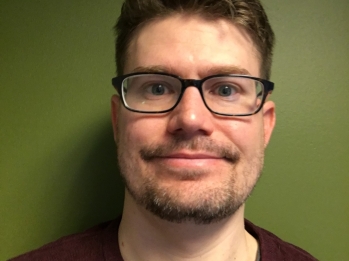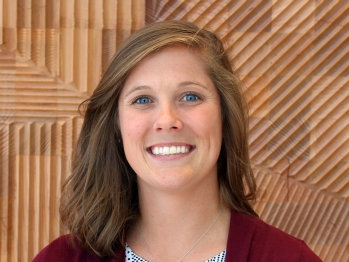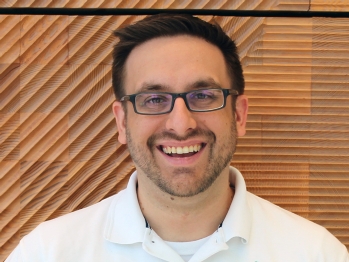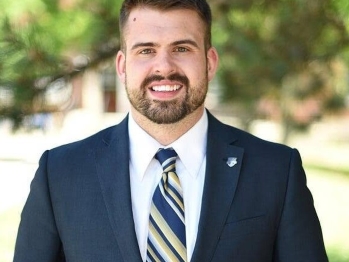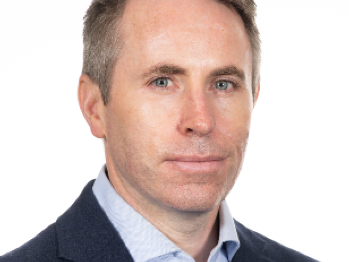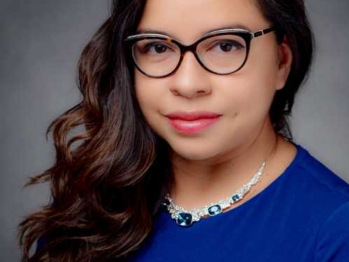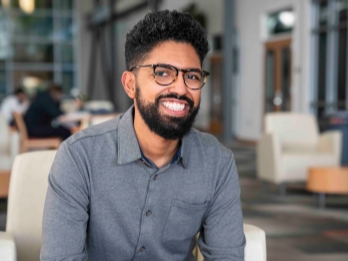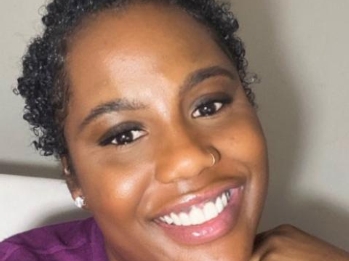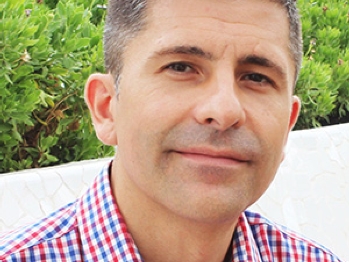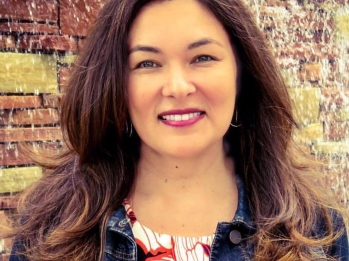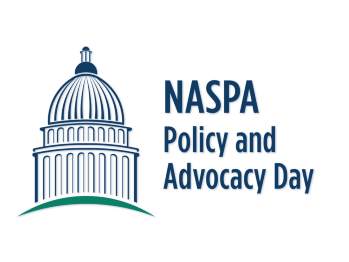
NASPA Policy and Advocacy Day
Division/Group Events
November 3, 2022
With midterm elections on the horizon, NASPA is launching a Policy and Advocacy Day in collaboration with the Public Policy Division on November 3 through Twitter Spaces. Learn more about key topical issues impacting higher education policy today and join the movement to deepen the level of impact for Student Affairs in the change-making process. Get started today by visiting the three steps below to guide your advocacy action planning in the upcoming year and beyond!
Presented By
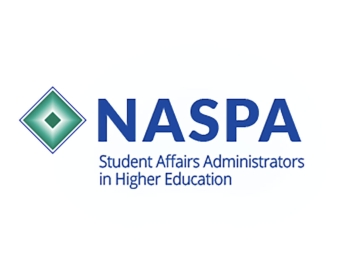
About
NASPA Policy and Advocacy Day builds off of NASPA's Learn. Engage. Vote. advocacy model to offer short informational live audio sessions over Twitter Spaces every hour on the hour from 11am EST to 4pm EST on topics impacting the higher education community today. Topics range from civic engagement and mental health on campus, to student loan forgiveness and impacts for immigrant and Deferred Action for Childhood Arrivals (DACA) recipients.
There is no registration for this event and it is free to attend, so check out the schedule below and mark your calendar for the sessions that are right for you.
On November 3, you can join your desired sessions in a number of ways. Make sure that you are following NASPA (@NASPAtweets). Once a Space has been started on the hour, anyone following the NASPA channel will see the Space light up in purple at the top of the timeline. You can also access each Space directly, and set a calendar reminder beforehand through the links in the schedule section below.
Spaces are public so anyone can listen in. Learn more about Twitter Spaces here. If you are curious about trying out Twitter Spaces prior to the event, please join us for a brief intro to the event on Thursday, October 27 at 3:30pm EST on the NASPA Twitter channel through this link!
Speakers
Learn
The first step in becoming a more engaged citizen is to learn. What you choose to learn about is up to you, and the possibilities are nearly endless.
NASPA’s Policy and Advocacy Resources
NASPA staff provide a montjly policy newsletter subsciption for members interested in public policy. NASPA’s Public Policy Division provides monthly blogpots to update our profession on federal and state issues affecting higher education. For the latest posts, visit Public Policy Division blogposts or check out the NASPA Public Policy Agenda page for posts aligned with the four tenets of the agenda.
NASPA is one of many higher education membership and advocacy groups working at the federal and state level to ensure the success of all college students. While the list below is far from exhaustive, the resources and associations included are a good place to start learning about issues in areas that align to the NASPA Public Policy Agenda.
Learn about topics important to our field
Student Success and College Completion
American Association of State Colleges and Universities (AASCU). AASCU is a Washington-based higher education association of nearly 420 public colleges, universities and systems whose members share a learning and teaching-centered culture, a historic commitment to underserved student populations and a dedication to research and creativity that advances their regions' economic progress and cultural development. AASCU is one of the most active national higher education associations in state policy issues and frequently produces reports and analysis summarizing trends across the states.
American Council on Education (ACE). ACE is the major coordinating body for the nation’s colleges and universities. ACE represents nearly 1,800 college and university presidents and the executives at related associations, and are the only major higher education association to represent all types of U.S. accredited, degree-granting institutions: two-year and four-year, public and private. ACE coordinates response to major federal legislation and regulatory efforts across the higher education sector, frequently creating resource pages on key issues and drafting letters and comments reflecting the input of the field that other associations can sign onto to indicate their support.
Center for First-generation Student Success. An initiative led by NASPA with the generous financial support of The Suder Foundation. The Center for First-generation Student Success serves the primary entity to increase the research, scholarship, and effective practice supporting first-generation student success and to expand the number of institutions with evidence-based programs.
Institute for Higher Education Policy (IHEP). The Institute for Higher Education Policy (IHEP) is a nonpartisan, nonprofit organization committed to promoting access to and success in higher education for all students. Based in Washington, D.C., IHEP develops innovative policy- and practice-oriented research to guide policymakers and education leaders who develop high-impact policies that will address our nation’s most pressing education challenges.
Student Safety and Wellness
Clery Center. Created by Connie and Howard Clery following the rape and murder of their daughter Jeanne in 1986, the Clery Center is dedicated to guiding institutions of higher education to implement effective campus safety measures.
International Association of Campus Law Enforcement Administrators (IACLEA). IACLEA was initially founded by 11 college and university security directors on November 6, 1958, on the Arizona State University campus. Originally convened to discuss job challenges and mutual problems and specifically to create a clearinghouse for information and issues that campus directors across the country shared, today IACLEA is the leading authority for campus public safety. Their members represent campus law enforcement and security issues before law and policy makers, higher education officials, and members of the public around the globe.
Coalition of Higher Education Associations for Substance Abuse Prevention (CoHEASAP). CoHEASAP exists to support coalition work in substance abuse prevention in higher education. Participating associations and organizations seek to develop best practices to provide mentorship, support, policy guidelines and develop preventative strategies for college students.
NIRSA: Leaders in Collegiate Recreation. As college and university students develop into future leaders, NIRSA members support their learning and growth by fostering lifelong habits of wellbeing. Leadership, teamwork, dedication, and respect are among the many skills exercised by inclusive competition, fitness, and recreation. Since its founding in 1950, NIRSA membership has grown to comprise nearly 4,500 dedicated professionals, students, and businesses, serving an estimated 8.1 million students.
Cost of Higher Education, Student Debt, and Borrower Protections
College Board Trends in Higher Education. The College Board is a mission-driven not-for-profit organization that connects students to college success and opportunity. Founded in 1900, the College Board was created to expand access to higher education. Today, the membership association is made up of over 6,000 of the world’s leading educational institutions and is dedicated to promoting excellence and equity in education. The College Board produces annual reports on trends in college pricing and student aid that include national and state-by-state analysis and data.
The Pell Institute. The Pell Institute for the Study of Opportunity in Higher Education, sponsored by the Council for Opportunity in Education, conducts and disseminates research and policy analysis to encourage policymakers, educators, and the public to improve educational opportunities and outcomes for low-income, first-generation, and disabled college students. The Pell Institute is the first research institute to specifically examine the issues affecting educational opportunity for this growing population.
The Institute for College Access & Success (TICAS). An independent, nonprofit organization, TICAS works to make higher education more available and affordable for people of all backgrounds. By conducting and supporting nonpartisan research, analysis, and advocacy, TICAS aims to improve the processes and public policies that can pave the way to successful educational outcomes for students and for society. One of TICAS’ initiatives is the Project on Student Debt, which works to increase public understanding of this student debt and the implications for our families, economy, and society.
Inclusive Opportunities for Access and Success in Higher Education
Council for Opportunity in Education (COE). COE is a nonprofit organization, established in 1981, dedicated to furthering the expansion of college opportunities for low-income, first-generation students, and students with disabilities in all 50 states, Washington, D.C., the Pacific Islands, and Puerto Rico. Its membership includes more than 1,000 colleges and agencies. Through its numerous membership services, the Council works in conjunction with colleges, universities, and agencies to help low-income students enter college and graduate.
The Education Trust (EdTrust). The EdTrust is a nonprofit organization that promotes closing opportunity gaps by expanding excellence and equity in education for students of color and those from low-income families from pre-kindergarten through college. Through research and advocacy, the organization builds and engages diverse communities that care about education equity, increases political and public will to act on equity issues, and increases college access and completion for historically underserved students.
Hispanic Association of Colleges & Universities (HACU). HACU represents more than 470 colleges and universities committed to Hispanic higher education success in the U.S., Puerto Rico, Latin America, and Spain. HACU is the only national educational association that represents Hispanic-Serving Institutions (HSIs). The HACU Advocacy Center includes calls to action for individuals to engage with their elected officials on issues impacting Hispanic-serving Institutions (HSIs) and other HACU member colleges and universities.
Student Veterans of America (SVA). SVA was officially incorporated in January 2008 to provide programs, resources, and support to the ever-evolving network of local student veteran organizations. To meet this need, SVA’s presence at the local and national levels has grown to include over 1,300 chapter affiliates, numerous private and nonprofit partners, and most importantly, an expanding list of impactful programs and services for veterans.
Civic Engagement and Freedom of Expression
Civic Learning and Democratic Engagement (CLDE) Initiatives. NASPA participates as a member of the Civic Action Network, convened by the Association of American Colleges & Universities (AAC&U) in 2012 and comprised of thirteen national civic learning and higher education organizations that have collaborated for over six years to make civic learning expected rather than optional for college students. Together, these organizations reach some 2,000 universities and colleges (both two-year and four-year) and include more than 8 million students. Through coordinated strategies, the CLDE Action Network aims to keep the national civic engagement agenda visible through conferences, publications, joint projects, research, webinars, and other resources.
NASPA’s LEAD Initiative on Civic Learning and Democratic Engagement (NASPA LEADInitiative). The NASPA LEAD Initiative comprises a network of 84 NASPA member colleges and universities committed to encouraging and highlighting the work of student affairs in making civic learning and democratic engagement a part of every student’s college education. The Lead Initiative offers unique professional development opportunities, targeted resources, networking, and recognition for its Lead Institutions.
AASCU's American Democracy Project (ADP). ADP is a network of more than 250 state colleges and universities focused on public higher education’s role in preparing the next generation of informed, engaged citizens for our democracy. ADP was established in 2003 as a nonpartisan initiative of AASCU in partnership with The New York Times. The goal of the American Democracy Project is to produce college and university graduates who are equipped with the knowledge, skills, attitudes and experiences they need to be informed, engaged members of their communities.
The Democracy Commitment (TDC). TDC is a non-partisan national organization dedicated to advancing democracy in higher education, and to make democratic skills available to all individuals who desire a voice and a seat at the table of local, state, and national discourse and action. To such end TDC provides a platform for the development and expansion of community college programs, projects, and curricula aimed at engaging students in civic learning and democratic engagement.
Institute for Democracy & Higher Education at Tufts University (IDHE). IDHE, part of the Jonathan M. Tisch College of Civic Life at Tufts University, serves as a leading venue for research, resources, and advocacy on college student political learning and engagement in democratic practice. Through research, resource development, and convening, we strive to inform and shift college and university priorities, practices, and culture to strengthen democracy and advance social and political equity. The Institute’s signature initiative is the National Study of Learning, Voting, and Engagement (NSLVE), which offers colleges and universities an opportunity to learn their student registration and voting rates and, for interested campuses, a closer examination of their campus climate for political learning and engagement, as well as correlations between specific student learning experiences and voting. More than 1,000 campuses across the country are enrolled in this first-of-its-kind study which provides a research database that includes nearly half of all college students in the United States.
Engage
Engaging in dialogue and debate with other participants in our representative democracy is one of the rights guaranteed in the U.S. Constitution. Sharing what you have learned about an issue, topic, or candidate can help encourage others to become involved and send stronger messages to elected officials about the will of their constituents. Whether you’re posting analysis of an issue or proposed piece of legislation on social media (including using elected officials’ Facebook pages or Twitter handles to share your thoughts) or attending speeches, town halls, rallies, or lobbying days (often offered virtually now) to promote a position or idea, or even deciding to run for office yourself, you’re taking part in the third step: representing your ideas and opinions.
Higher Education Calls to Action
NASPA regularly represents the voices of student affairs professionals in policy conversations in Washington, D.C. along with other higher education associations. Our recent statements and letters from the higher education community that we have joined demonstrate the specific areas we are working to draw policymakers’ attention to and may be useful as you develop your own talking points and letters. For a listing of recent statements and letters NASPA has participated in, please see the Policy & Advocacy page on the NASPA website.
Current Calls to Action
Collective advocacy, the intentional leveraging of many voices on a single issue or set of issues, is a powerful and effective way to get lawmakers’ attention. Whether you join in to add your voice on issues that affect our students and their ability to access and complete their education, or organize a call-in or letter writing campaign to mobilize others, your voice is needed. The list on the NASPA Policy & Advocacy page represents a sampling of current calls to action, though please note that calls for an institutional commitment or comment should be handled in cooperation with your campus government affairs or senior leadership team.
Keep in Mind
When attending political events during your non-work hours, whether they are on or off campus, avoid wearing clothing or accessories that identify you as affiliated with the institution. If you speak at an event, especially if students you work with are present, consider prefacing your remarks by stating that you are speaking as an individual citizen, not as a representative of your institution. If you participate in social media using publicly accessible accounts or accounts that students or other faculty or staff follow, add a sentence to your profile stating that the opinions you express are your own and do not represent your employer. You may also want to avoid posting or commenting on political issues during your work hours.
Employees at public institutions may have additional rules governing when, where, and what kinds of activism they are allowed to engage in. It is always a good practice to familiarize yourself with any campus, local, or state policies governing your responsibilities as a state employee and any restrictions that may place on your political speech. For instance, laws governing lobbying by state employees may prevent you from speaking out on specific legislation using institutional resources, which may include computers or wireless networks. If you are planning to speak publicly on specific legislation or in favor of or opposition to a specific candidate, you should always use your own computer connected to a public or personal network. If you are unsure of your rights or responsibilities as a public employee in political arenas, speak with your campus human resources office or general counsel.
Vote!
Learning, though very important, is only the first step in becoming an engaged participant in our representative democracy. Voting, working to promote engagement by others on your campus, and staying informed about the actions of your representatives are next steps in the process.
Vote
Voting Resources
Andrew Goodman Foundation. The Andrew Goodman Foundation works to make young voices and votes a powerful force in democracy. The organization partners with colleges and universities to cultivate civic leaders, remove voting barriers, and mobilize student voters to take action by creating a more civic-minded campus culture.
BallotReady. BallotReady’s mission is to create a more informed electorate and strengthen our democracy by helping voters vote informed, all the way down the ballot for every election, not just Presidential elections. BallotReady makes it easy for voters to research and understand every candidate and referendum up for election.
Campus Vote Project. In 2012, the Fair Elections Center launched Campus Vote Project (CVP) to expand its work around student voting issues. CVP works with universities, community colleges, faculty, students, and election officials to reduce barriers to student voting. Our goal is to help campuses institutionalize reforms that empower students with the information they need to register and vote.
Election Protection. The national, nonpartisan Election Protection coalition works year-round to ensure that all voters have an equal opportunity to vote and have that vote count. Made up of more than 300 local, state and national partners, Election Protection uses a wide range of tools and activities to protect, advance and defend the right to vote.
Federal Voting Assistance Program (FVAP). FVAP works to ensure Service members, their eligible family members and overseas citizens are aware of their right to vote and have the tools and resources to successfully do so - from anywhere in the world. FVAP assists voters through partnerships with the Military Services, Department of State, Department of Justice and election officials from 50 States, U.S. territories and the District of Columbia.
HeadCount. HeadCount is a non-partisan organization that works with musicians to promote participation in democracy by staging voter registration drives at concerts. HeadCount.org provides a comprehensive voter info hub where you can find your polling place, see what’s on your ballot, verify your voter registration status, or find answers to voting-related question.
State Board of Elections. Every state has a Board of Elections that will provide non-partisan, official information on election dates, polling places, candidates, and ballots for every election.
Vote411. Launched by the League of Women Voters Education Fund (LWVEF) in October of 2006, VOTE411.org is a "one-stop-shop" for election related information. It provides nonpartisan information to the public with both general and state-specific information on the many aspects of the election process including absentee voting, early voting options, registration deadlines, and voter qualifications.
Resources for Promoting Voting at your Institution
ALL IN Campus Democracy Challenge. The ALL IN Campus Democracy Challenge strives to change civic culture and institutionalize democratic engagement activities and programs on college campuses, making them a defining feature of campus life. The ALL IN Challenge, in collaboration with higher education, seeks to: make participation in local, state, and federal elections a social norm; substantially increase the number of college students who are democratically engaged on an ongoing basis, during and between elections, and not just at the polls; and make educating for democratic engagement on college campuses an accepted and expected part of the culture and curriculum so that students graduate with the knowledge, skills, behaviors, and values needed to be informed and active citizens.
Asian and Pacific Islander American Vote (APIA Vote). APIAVote is a national nonpartisan organization that works with partners to mobilize Asian Americans and Pacific Islanders in electoral and civic participation.
Civic Nation. Civic Nation uses organizing, engagement and public awareness to address some of our nation's most pressing challenges. They work with public and private partners to build tools and campaigns that turn great ideas into action.
Students Learn Students Vote. The Students Learn Students Vote Coalition promotes civic learning and engagement on campuses across the country by providing a series of key steps and information on best practices that institutions can use to create a more voter friendly campus.
Voter Friendly Campus. The Voter Friendly Campus designation program was started through the partnership of Campus Vote Project and NASPA in 2016. The goal of the program is to help institutions develop plans to coordinate administrators, faculty, and student organizations in civic and electoral engagement. The Voter Friendly Campus designation helps administrators develop a strategy to engage students and set clear goals so a path can be created in advance of upcoming elections.
Voto Latino. Voto Latino is a nonpartisan, non-profit organization in the United States founded in 2004. The organization's primary aim is to encourage young Hispanic and Latino voters to register to vote and become more politically involved. Through innovative digital campaigns, pop culture, and grassroots voices, Voto Latino provides culturally relevant programs that engage, educate and empower Latinos to be agents of change.
Western Native Voice. Western Native Voice is a non-profit, non-partisan social justice organization working to inspire Native leadership. Their program includes voter registration, voter mobilization, Get Out the Vote (GOTV) activities, training on public narrative and mobilizing individuals to take action on issues important to them. Along with our allies, Western Native Voice works to increase the number of new registered voters, voter turnout, and engagement with elected officials.
Connecting with your Elected Officials
Voting is not the end of your responsibility, though; it is important to establish regular communication with your elected officials. Many websites provide contact information for your state and federal representatives. You have the option of a phone call, fax, postal mail, email, text message, or by attending a meeting or event being held by your elected officials. There are also organizations that can help you keep up with other elected officials, like judges, law enforcement, and more.
Keep in Mind
Unless you are representing your employer’s opinion or stance in an official capacity, you should always use a personal email address or telephone when contacting your elected officials. This is especially important if you work for a public institution, where state laws may restrict your use of institutional resources, such as email servers or work time, to contact elected officials. It is generally a best practice to contact your officials during your non-work hours from a personal email address or phone to avoid any appearance of impropriety.
Schedule
Twitter Spaces Sessions
November 3rd
11:00 AM - 11:30 AM
Topical Session: Civic Engagement
Set your reminder and access this session here
Featuring: Mike Burns, National Director of the Fair Elections Center's Campus Vote Project
12:00 PM - 12:30 PM
Topical Session: Mental Health
Details
Set your reminder and access this session here
Featuring:
- Mallory Jordan, Senior Director of Health and Well-Being Initiatives, NASPA
- David Arnold, Associate Vice President for Health, Safety, and Well-Being Initiatives, NASPA
- Scott Sheehan, Associate Director for Residence Life, Rochester Institute of Technology
1:00 PM - 1:30 PM
Topical Session: Student Loan Forgiveness Policy Impacts and Considerations
Set your reminder and access this session here
Featuring: Michele Streeter Shepard, Senior Director of College Affordability, The Institute for College Access and Success (TICAS)
2:00 PM - 2:30 PM
Topical Session: Student Loan Forgiveness Application
Set your reminder and access this session here
Featuring: Don Moynihan, Professor, McCourt School of Public Policy, Georgetown University
3:00 PM - 4:00 PM
Topical Session: Deferred Action for Childhood Arrivals (DACA)
Details
Set your reminder and access this session here
Featuring:
- Susana Muñoz, Associate Professor, University of Colorado
- Alonso R. Reyna Riarola, Senior Director, Salt Lake Community College
- Kayon A. Hall, Assistant Professor, Kent State University
- H. Kenny Nienhusser, Associate Professor and Program Coordinator, University of Connecticut
